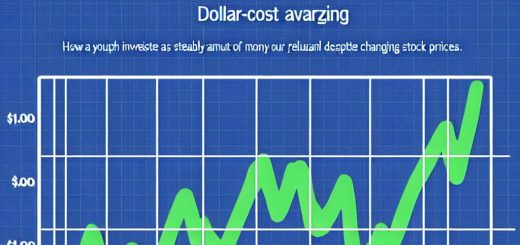Spread betting is a financial derivative that allows traders to speculate on market price movements without buying and selling the actual assets. It involves predicting whether the price of a particular asset, such as a stock, commodity, currency, or index, will rise or fall. It’s a popular tool among traders due to its potential for significant returns. However, it also carries a high risk and may not be suitable for all investors.
- Spread betting makes it easy to profit from both rising and falling prices. With spread betting, you can profit from falling prices without having to resort to short-selling. (Short-selling is more risky since the downside is not capped).
- In some jurisdictions, using spread betting instead of actual ownership can greatly reduce costs, e.g. by removing the need to pay fees and taxes associated with ownership.
- Many brokers that offer spread betting also offers leverage.
Spread betting can be an attractive option for investors due to its tax benefits and the ability to bet on both rising and falling markets. However, it’s essential to understand the risks involved and employ effective risk management strategies. Always stay informed and consider seeking advice from financial advisors or professionals.
Now, let’s delve into some common questions about spread betting.
1. What is Spread Betting?
Spread betting is a form of speculation that involves taking a bet on the price movement of a un underlying asset or product, e.g. a share price or a stock index. A spread betting company quotes two prices, the bid and ask price (also known as the spread), and traders bet whether the price of the underlying security will be lower than the bid or higher than the ask.
2. How does Spread Betting work?
In spread betting, the spread refers to the difference between the buy and sell price quoted by the spread betting provider. You bet a certain amount per point of movement in the underlying asset’s price. If you believe the price will rise, you place a ‘buy’ bet. If you think it will fall, you place a ‘sell’ bet. Your profit or loss depends on the extent to which you’re right or wrong.
3. Is Spread Betting taxable?
This depends on the jurisdiction, so it is important to investigate applicable laws and regulations. Also keep in midn that tax laws can change and may also vary depending on your personal circumstances, e.g. professional trader vs. hobby trader.
4. Is Spread Betting gambling?
Legally, most jurisdictions do not consider spread betting gambling, since the skill element is so strong. Skilled traders use their financial knowledge, analysis, and strategy to predict the market’s direction. It’s a legitimate investment technique, albeit a high-risk one.
With that said, there are individual traders who approach spread betting in a way that makes it more akin to gambling, since they place their “bets” based on a gut feeling. Of course, this type of willy-nilly speculation also happens on other markets, e.g. the stock market and the options market.
Philosofically, it could be argued that many types of sports betting should, logically, also not be seen as pure gambling, as there can be such as strong element of skill involved. These are questions that law makers are struggling with. In many jurisdictions, sports betting is classified as gambling while spread betting is not, based on fairly loose grounds.
5. How is Spread Betting different from traditional trading?
In traditional trading, you buy an asset and profit when you sell it at a higher price. In contrast, spread betting involves betting on whether the price of an asset will go up or down. With spread betting, you can profit from falling markets as well as rising ones without having to engage in short-selling. 6. Can you lose more than your deposit in Spread Betting?
Yes, if you use leverage. In this sense, spread betting is not different form other types of trading. If you use leverage, you are borrowing money from your broker to open a position, and if you lose that money, you are still obligated to pay back the loan.
If you don’t want to add this extra element of risk, you can still engage in spread betting – just make sure not to use leverage.
Important: In many parts of the world, laws are now in place to protect non-professional traders from losing more than what they have in their trading account. Such jurisdictions will typically also limit how much leverage a broker is allowed to give a non-professional trader.
If you are a non-professional trader using leverage in such a jurisdiction, make sure you known exactly how this works. Typically, the so called Negative Balance Protection will give the broker a right to put stop-losses in place that will activate automatically without your permission to prevent your account balance from falling too much. This is a great way to protect you against ending up in debt, but it will also mean that these stop-losses will close positions even when you absolutely do not want them too, e.g. because it is clear that the market is just reacting impulsively to some news and will correct itself very soon.
7. How can I manage my risks in Spread Betting?
There are several ways to manage your risk in spread betting, and many of techniques are the same as for other types of speculation and trading:
– Set stop losses. This automatically closes your position if the market moves against you to a certain extent.
– Start small. Especially for beginners, it’s prudent to start with small bets until you get the hang of it.
– Diversify your portfolio. Don’t put all your eggs in one basket. Diversify to spread the risk.
– Do not have too much of your total bankroll in open positions at any given moment. If something unusual happens that make markets go wild, you do not want to lose the majority of your bankroll.
– Understand the market and the asset you’re betting on, and also understand exactly how spread betting works at your particular broker.
– Do not risk money you can not afford to lose. Not only is it bad in itself, but it is also likely to impact our decicion making negatively. When we put money on the line that we can not afford to lose, we tend to get more emotional and make poorer decisions. It also increases the risk of ending up in a negative spiral where we take increasingly high risks in an attempt to get back lost money.
8. Is Spread Betting the same as Binary Options trading?
No, it is not. With a classic binary option, the outcome is binary: you either “win” and get the predetermined payout or you “lose” and lose all the money you risked.
With spread betting, you bet a certain amount per point of movement in the underlying asset’s price. Your profit or loss depends on the extent to which you were right or wrong. Therefore, the result is not binary.
This article was last updated on: March 12, 2025





